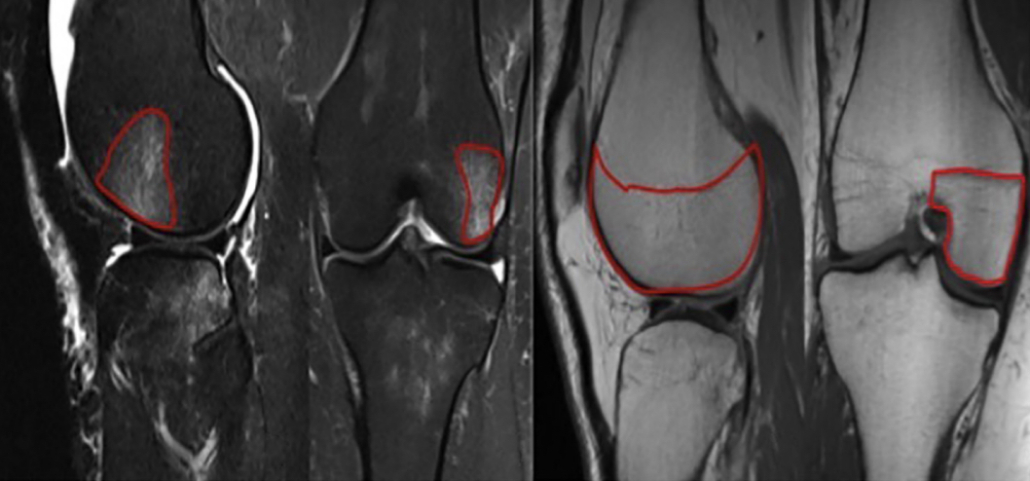ACL tears and bone bruises
Research Review
Not sure if you saw my recent post on social media about bone bruises after an ACL tear so I wanted to discuss it further here.
In this study, the authors looked at the incidence of radiographic chondral changes (without correlation with clinical and functional outcomes) on MRI 5 years after the ACL tear.
Bone bruises often coincide with an acute ACL tear and can be seen on an MRI. Basically, a larger bone bruise was shown to have a significant influence on chondral changes 5 years post-surgery.
In most of the cases, the lateral side of the knee (both the tibia and the femur) were involved. Whereas the medial side had fewer incidences of a bone bruise after the injury.

This is very typical after an ACL injury and previously cited by numerous authors.
I’ve always said that these bone bruises need to be communicated throughout the rehab team. These bone bruises should influence the progression back to sport.
Delay impact activities after ACL surgery
It is for this reason that I have delayed most of my athletes’ return to impact activities until 4-5 months after the surgery. I often don’t initiate running and plyometrics until 4-5 months after the surgery.
We need to respect the bone bruise healing times (which are still not truly known). They seem to take months to achieve homeostasis, which means no pain or swelling.
Only another MRI would truly confirm full healing so we need to rely on symptoms, most of the time.
I think this may allow the athlete to achieve better long-term success. But we need to understand these bruises more before we can fully determine the correct rehab process.
I think the long term life of the athlete’s knee can be influenced by our rate of rehab progressions. To me, slower seems to be better in these situations.
Gone are the days of trying to return our athletes back to their sport as quickly as possible.
Take the time to get their motion back, especially knee extension.
We are beginning to better understand the implications of these bone bruises on the long-term health of the athlete’s knee.
Educate the patient fully and build confidence! Rehab after an ACL surgery is never easy so don’t take anything for granted!
